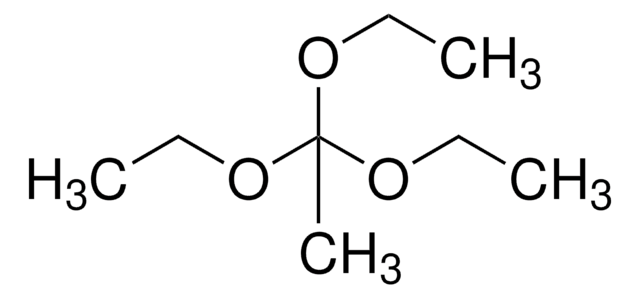All Photos(1)
About This Item
Linear Formula:
H2C=CHCH(CH3)CH2OH
CAS Number:
Molecular Weight:
86.13
MDL number:
UNSPSC Code:
12352100
PubChem Substance ID:
NACRES:
NA.22
Recommended Products
Quality Level
Assay
98%
form
liquid
refractive index
n20/D 1.427 (lit.)
bp
120-121 °C/756 mmHg (lit.)
density
0.835 g/mL at 25 °C (lit.)
SMILES string
CC(CO)C=C
InChI
1S/C5H10O/c1-3-5(2)4-6/h3,5-6H,1,4H2,2H3
InChI key
NVGOATMUHKIQQG-UHFFFAOYSA-N
General description
Secondary organic aerosol (SOA) formation from 2-methyl-3-buten-2-ol (MBO) photooxidation was investigated.
Application
- Semiochemical emission by fungal symbionts: The study explored how linoleic acid stimulates the emission of bark beetle semiochemicals, including compounds like 2-Methyl-3-buten-1-ol, by fungal symbionts, offering insights into ecological interactions and potential applications in pest management (Unelius et al., 2023).
Signal Word
Warning
Hazard Statements
Precautionary Statements
Hazard Classifications
Flam. Liq. 3
Storage Class Code
3 - Flammable liquids
WGK
WGK 3
Flash Point(F)
91.4 °F - closed cup
Flash Point(C)
33 °C - closed cup
Personal Protective Equipment
dust mask type N95 (US), Eyeshields, Gloves
Certificates of Analysis (COA)
Search for Certificates of Analysis (COA) by entering the products Lot/Batch Number. Lot and Batch Numbers can be found on a product’s label following the words ‘Lot’ or ‘Batch’.
Already Own This Product?
Find documentation for the products that you have recently purchased in the Document Library.
Customers Also Viewed
Haofei Zhang et al.
Environmental science & technology letters, 1(4), 242-247 (2014-05-27)
Secondary organic aerosol (SOA) formation from 2-methyl-3-buten-2-ol (MBO) photooxidation has recently been observed in both field and laboratory studies. Similar to the level of isoprene, the level of MBO-derived SOA increases with elevated aerosol acidity in the absence of nitric
Tran B Nguyen et al.
Physical chemistry chemical physics : PCCP, 17(27), 17914-17926 (2015-06-23)
Methacryloyl peroxynitrate (MPAN), the acyl peroxynitrate of methacrolein, has been suggested to be an important secondary organic aerosol (SOA) precursor from isoprene oxidation. Yet, the mechanism by which MPAN produces SOA through reaction with the hydroxyl radical (OH) is unclear.
Our team of scientists has experience in all areas of research including Life Science, Material Science, Chemical Synthesis, Chromatography, Analytical and many others.
Contact Technical Service











